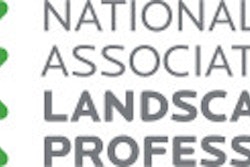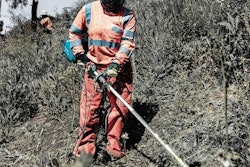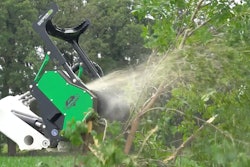Slippery Slope
Pesticide restrictions intensify as more states impose bans on use.
By Cindy Ratcliff
Three more states in the Northeast are proposing new laws that would prohibit the use of pesticides on grounds surrounding schools and, in some cases, daycare centers.
If adopted, New Jersey, Maine and New Hampshire would join New York and Connecticut in imposing bans on EPA-registered lawn and ornamental pesticides for playgrounds and playing fields.
For now, residential lawns are excluded from state legislation calling for pesticide restrictions, but as each of these bills pass, it opens the door to the possibility of their gradual expansion, according to Tom Delaney, director of government affairs, Professional Landcare Network (PLANET). He points to Canada, where many provinces ban cosmetic use of pesticides altogether, as an example of how quickly policy can pass from public to private property.
“Those who would like to see pesticide use go away feel schools are easier targets for these laws, but it’s just a starting point,” says Delaney, who is also a member of the Pesticide Policy Dialogue Committee (PPDC), an EPA federal advisory committee.
“We all should be paying attention—even if you don’t make applications at schools. Don’t sit on the sidelines thinking this doesn’t affect you because eventually, it will. We’re not so far removed from it on residential lawns. We may work on a different site, but we use the same products, so don’t put your head in the sand. Support those in the industry who are being affected now.”
Delaney says following best management practices along with IPM (Integrated Pest Management) are the best ways landscapers can support the industry. “All it takes is one person doing something wrong to provide the basis for a new law or regulation, and everyone in the industry will suffer from that person’s poor practices,” he says.
In the United States, determining regulations for pesticide use is a responsibility shared at the state and national levels. The EPA regulates pesticides nationally under the authority of the Federal Insecticide, Fungicide and Rodenticide Act (FIFRA) and other laws to register pesticides, educate applicators, monitor compliance and investigate pesticide problems.
Under these guidelines, states are allowed to develop their own regulations that are more comprehensive and stringent than federal regulations. State pesticide regulatory offices typically license pest control companies that operate in each state, certify individual pest control applicators, investigate companies and enforce pesticide laws in conjunction with the EPA and other agencies, according to the National Pesticide Information Center.
Many states also have preemption laws to prevent municipalities from crafting their own laws regarding the use of pesticides and fertilizers. However, a bill introduced in the Connecticut legislature earlier this year seeks to overturn the state’s pesticide preemption law. In states that don’t have state primacy laws, municipalities can specify their unique ordinances for how pesticides are used and applicators are certified.
What follows is an update of new and/or noteworthy state and municipal pesticide usage restrictions, including proposed legislation that would impact usage on a national level.
1. According to Beyond Pesticides (a non-profit organization that advocates “a world free of pesticides”) research, 34 states have adopted laws that address pesticide use at schools and/or daycare centers:
• 21 states recommend or require schools to use IPM, a 24-percent increase since 1998;
• 16 states restrict when or what pesticide may be applied in schools;
• 17 states require posting of signs for indoor school pesticide applications;
• 26 states require posting of signs for pesticide application made on school grounds;
• 23 states require prior written notification to students, parents or staff before a pesticide
application is made to schools.
2. Recent laws passed in New York and Connecticut restrict the use of pesticides on schools grounds and daycare centers. The Connecticut law (effective Oct. 1, 2009, for daycare centers and on July 1, 2010, for K-8 schools) bans all EPA-registered pesticides labeled for use on lawn and/or ornamental sites, including fungicides, herbicides and insecticides. New York State’s Child Safe Playing Fields Act was passed in May 2010, requiring all schools, preschools and daycare centers, both public and private, stop using pesticides on playgrounds or playing fields. The law went into effect for daycares on Nov. 14, 2010, and for schools on May 18, 2011. The law does allow for emergency application of pesticides in instances of infestations.
3. New Jersey is proposing a Child Safe Playing Fields Act this year. Forty towns there already have pesticide-free parks, and more than 30 municipalities have enacted bans of synthetic lawn pesticides on public property.
4. Maine and New Hampshire are each proposing a version of Child Safe Playing Fields Act for their states, as well.
5. On Massachusetts school grounds, no pesticides can be applied for purely aesthetic reasons.
6. Illinois’ Pesticide and Lawn Care Product Application bill prohibits the application of pesticides when children are present at licensed daycare centers. Additionally, the treated area of those centers must remain unoccupied for at least two hours following application. Applicators must provide a four-day advance notice of application for parents and guardians of children at daycares and schools.
7. Federal legislation, the School Environmental Protection Act (SEPA), was first introduced in November 1999 in both the U.S. Senate and House and has been reintroduced every Congressional session since, according to Beyond Pesticides. It seeks to restrict the use of pesticides both indoors and on school grounds nationwide. It also would ban the use of synthetic fertilizer at schools. The bill, if adopted, would establish a 12-member National School IPM Advisory Board to develop school IPM standards that would be a national standard.
Sources: SafeLawns.org, Connecticut Department of Environmental Protection, Golf Course Superintendents Association of America, BeyondPesticides.org, Environmental Protection Agency, New Jersey State Legislature, Cornell University, National Pesticide Information Center, Responsible Industry for a Sound Environment, IPM Institute of North America.









